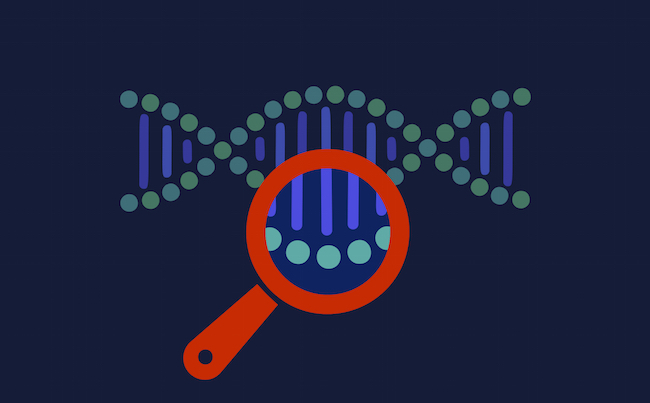What is genetic testing?
Genetic testing, or screening, is a possible step in your fertility treatment.
Genetic testing is a process that looks at DNA from samples of body fluids or tissues, for certain changes (mutations) to genes.
Your genes are wrapped-up in chromosomes. Everyone has 23 pairs of chromosomes that contain your DNA code. An example of a chromosome pair is the one that determines the sex of a baby. If there are two Xs, it will be a girl. If there is an X and a Y, it will be a boy.
Changes to your chromosomes or DNA code can be important when you are trying to conceive because some of these changes are related to being infertile, having a miscarriage or having a child with a certain genetic disorder (for example, Trisomy 21 or Down Syndrome).
You may choose to do genetic screening, as it can answer some of your “what ifs” about your future baby. Some types of genetic testing can also help you determine if there is a genetic cause of your fertility struggles.
Genetic screening can help couples going through in vitro fertilization (IVF) decide which embryo is the healthiest to transfer. It can also be of use to couples who have an increased risk of having a baby with a hereditary or chromosomal disorder (for example, members of the Ashkenazi Jewish community or French Canadians).
Your physician or genetic counsellor will explain whether this type of testing is necessary for you and/or your partner.
Genetic testing for me
Based on your medical history and examination, your healthcare provider may recommend genetic testing. Examples of genetic tests include:
- Analysis to determine if you have extra, missing or damaged chromosomes (medical speak: karyotype testing).
- Klinefelter syndrome is one example of a condition involving an extra X chromosome. This syndrome can lead to unusually small testicles and imbalances in testosterone.
- Another example is Kallmann syndrome, which is the result of certain irregularities in gene coding. These irregularities can lead to delayed puberty and low testosterone levels, and an unusually small penis.
- Parts of the Y chromosome are missing (medical speak: Y chromosome microdeletion testing).
- While many men have parts of their Y chromosome missing, these small deletions can reduce the number of sperm you produce.
- Examination of the DNA for genetic differences that are related to a disease (medical speak: autosomal gene mutations and polymorphisms).
- An example of this is cystic fibrosis. Cystic fibrosis is a multi-system disorder that affects your lungs, fertility status and weight.
- Fragile X carrier testing
- A specific test that looks to see if you are a carrier of the genetic condition Fragile X. Women carriers of Fragile X may experience infertility, while men who carry Fragile X do not generally have fertility-related symptoms.
- If both you and your partner are carriers of Fragile X, your child may be at higher risk of being born with Fragile X, a genetic disease that causes developmental delays and mental impairments.
- A specific test that looks to see if you are a carrier of the genetic condition Fragile X. Women carriers of Fragile X may experience infertility, while men who carry Fragile X do not generally have fertility-related symptoms.
If you are thinking about genetic testing, it can be helpful to talk to a genetic counsellor who can explain the various types of tests and the significance of the results.
Genetic testing for the embryo
There are several possible genetic tests for embryos if you are having IVF treatment. The testing is performed after the egg and sperm are combined to make an embryo and before the embryo is transferred to the woman.
- Pre-implantation genetic testing for single gene disorders (e.g. cystic fibrosis)
- This process screens your embryo for abnormalities, or irregularities, in specific genes. You will be offered this test if you know you have a family history of a disease that can be genetically passed down. For example, if you or your partner are carriers for the gene that causes cystic fibrosis, the embryo will be screened for that disease.
- Pre-implantation genetic testing for aneuploidy (e.g. Trisomy 21)
- These tests screen the embryo for an abnormal number of chromosomes (humans have 23 pairs), not for a specific condition or disease. You may be offered this test if you are over the age of 35, if you have had several miscarriages, or you’ve had multiple failed IVF cycles.
- These tests screen the embryo for an abnormal number of chromosomes (humans have 23 pairs), not for a specific condition or disease. You may be offered this test if you are over the age of 35, if you have had several miscarriages, or you’ve had multiple failed IVF cycles.
DID YOU KNOW?
The number of chromosomes the embryo has is important, because an incorrect number (more or less than 23) can lead to an unsuccessful pregnancy or a baby born with a genetic condition. It can help ensure that only embryos with the right number of chromosomes are transferred.
Canadian Fertility and Andrology Society (CFAS) guidelines suggest that you should discuss whether performing genetic pre-implantation testing is right for you.
How is the embryo tested?
- A few cells are removed from the embryo and analyzed in the lab. The embryo is then frozen until the results are available.
When is the embryo tested?
- Embryos are screened before being implanted into the uterus. The tests are done typically on day 3 or day 5 after fertilization of the embryo. If you have frozen embryos, the testing can be done after the embryos are thawed.
When will I get the results?
- It can take one to two weeks to get the test results.
Is there a chance that the test is wrong?
- Yes, as with most medical tests, there is a small possibility the result will be false positive or false negative. A false positive means that the test indicated a genetic abnormality with the embryo when there isn’t one. A false negative means that the test has missed an existing genetic abnormality.








